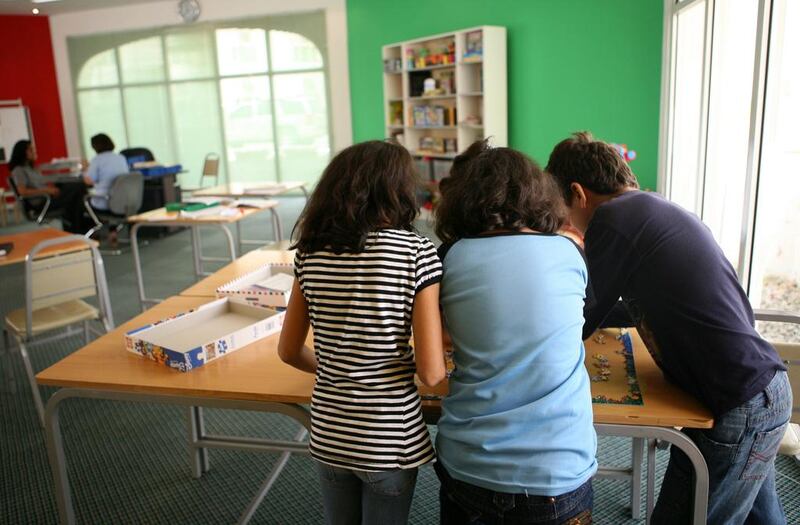DUBAI // Improving investigation into cases of child abuse and domestic violence, assessing criminal intent and presenting clear testimony are key to creating a strong care network, social workers were told at the start of a three-day event in Dubai on Tuesday.
More than 50 psychologists and counsellors from the police, courts, prosecution and education sectors from across the UAE gathered for the event to find ways to help abused children and women.
“We found a gap when the prosecution or court requested a report in a child abuse case or how to deal with a divorce custody case,” said Ghanima Al Bahri, care and rehabilitation director of the Dubai Foundation for Women and Children (DFWAC), which organised the meeting.
“Our reports are not comprehensive, people do not have the expertise. The report that goes to court is not always professional because it is new for psychologists and counsellors to give testimony. Decisions based on that report can take someone away from the family. So we must understand best practices in courts around the world.”
The centre helped 124 victims of domestic abuse in the second quarter of this year, of which about nine in 10 women were abused by their husbands. A recent DFWAC study found fathers were the most common abusers of children.
The foundation dealt with 1,090 domestic abuse cases last year.
Psychologists asked for better understanding of victims’ rights and confidentiality laws.
Amira Al Blooshi, a counsellor at the United Arab Emirates University in Al Ain, said: “Students come with their problems, some were abused as children or married female students face verbal abuse and neglect.
“If we understand the law, what we can and cannot do, we can help to stop this.”
Social media was also blamed for causing rifts in the home.
Abdullah Mutawa, a consultant in the family guidance department at Dubai Courts, said there had been an increase in divorce cases over the past four years in which men had forbidden their wives from using the WhatsApp instant messenger app on their smartphones.
“This is a recurring problem in divorce cases of people between 18 and 27 years,” he said. In one case a wife filed for divorce after her husband beat their 18-year-old daughter for posting photographs on Instagram, he said.
Cutting off communication could be a symptom of severe domestic violence, officials said.
“We receive some cases where husbands do not give wives a chance to communicate.
“She does not have right to have her own mobile, email or bank account. He blocks anything related to her independence,” Ms Al Bahri said.
“These [cases] come with severe physical abuse, it’s not a big number, but in this domestic violence the husband wants to isolate the lady so she cannot seek help.”
rtalwar@thenational.ae






